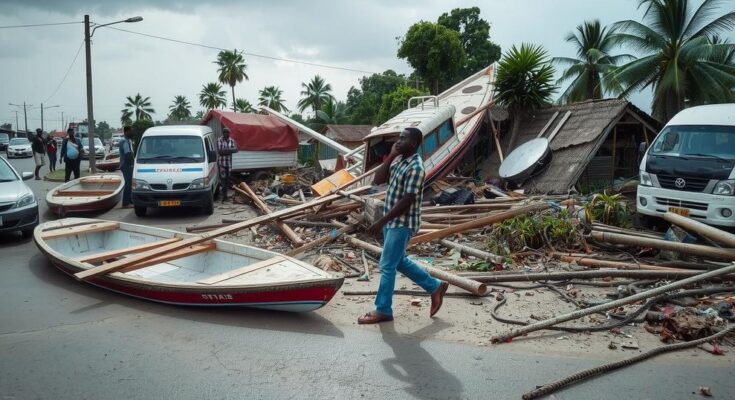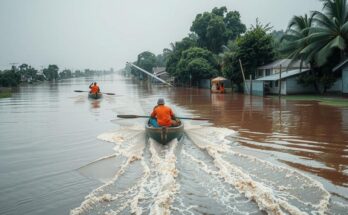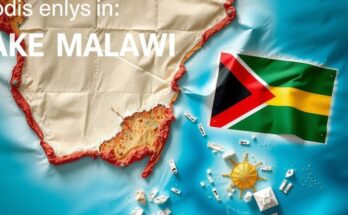Mozambique has raised the death toll from Tropical Cyclone Chido to 94 as recovery efforts continue. The cyclone severely damaged the northern province of Cabo Delgado, destroying over 110,000 homes. The French territory of Mayotte is still assessing the damage with 35 reported dead and fears of rising fatalities. The cyclone also affected Malawi, leading to additional fatalities there as well.
Mozambique has officially increased the death toll from Tropical Cyclone Chido to 94, following ongoing recovery efforts in the wake of the disaster. This severe storm, which was at its peak category four strength, unleashed havoc on the region, particularly impacting the northern province of Cabo Delgado where it caused extensive destruction. Over 110,000 homes were reported destroyed as the cyclone made landfall, with approximately 500,000 out of 620,000 affected Mozambicans located in this province. The cyclone’s ferocity was exacerbated by human-induced climate change, according to expert assessments.
The aftermath in Mayotte—a French territory also devastated by the storm—is concerning, as authorities anticipate a significant yet currently unverified death count, following initial reports of 35 fatalities and 2,500 injuries. The region is home to many undocumented migrants from the nearby Comoros islands, and the destruction of shantytowns is feared to have led to more casualties than accounted for.
President Emmanuel Macron’s recent visit to Mayotte drew criticism after he remarked, “If this was not [part of] France, you would be 10,000 times deeper in the sh*t,” illustrating raised tensions amid the disaster response. Meanwhile, the Comoros has declared a day of national mourning despite reporting no deaths on its territory. After traversing Mozambique, Cyclone Chido continued on to Malawi, resulting in additional fatalities as recovery efforts carry on across the affected areas.
Tropical Cyclone Chido struck the west Indian Ocean, wreaking widespread destruction across Mozambique and surrounding territories. Hitting the region particularly hard due to its high intensity, the storm led to catastrophic damage, including the loss of numerous homes and significant human casualties. Mozambique’s situation is further complicated by ongoing political unrest resulting from a contentious post-election atmosphere. The cyclone’s impacts were magnified by changing climate patterns, prompting increased attention to the underlying environmental issues.
In conclusion, Tropical Cyclone Chido’s aftermath is dire, with Mozambique and Mayotte grappling with increased death tolls and extensive destruction. The need for ongoing relief efforts is critical as authorities assess the long-term effects and seek to address the humanitarian crisis. The situation serves as a brutal reminder of the challenges posed by extreme weather intensified by human activities. Recovery strategies must take into account climatic changes and socio-political stability to ensure that affected populations receive necessary support and are better prepared for future disasters.
Original Source: www.abc.net.au




